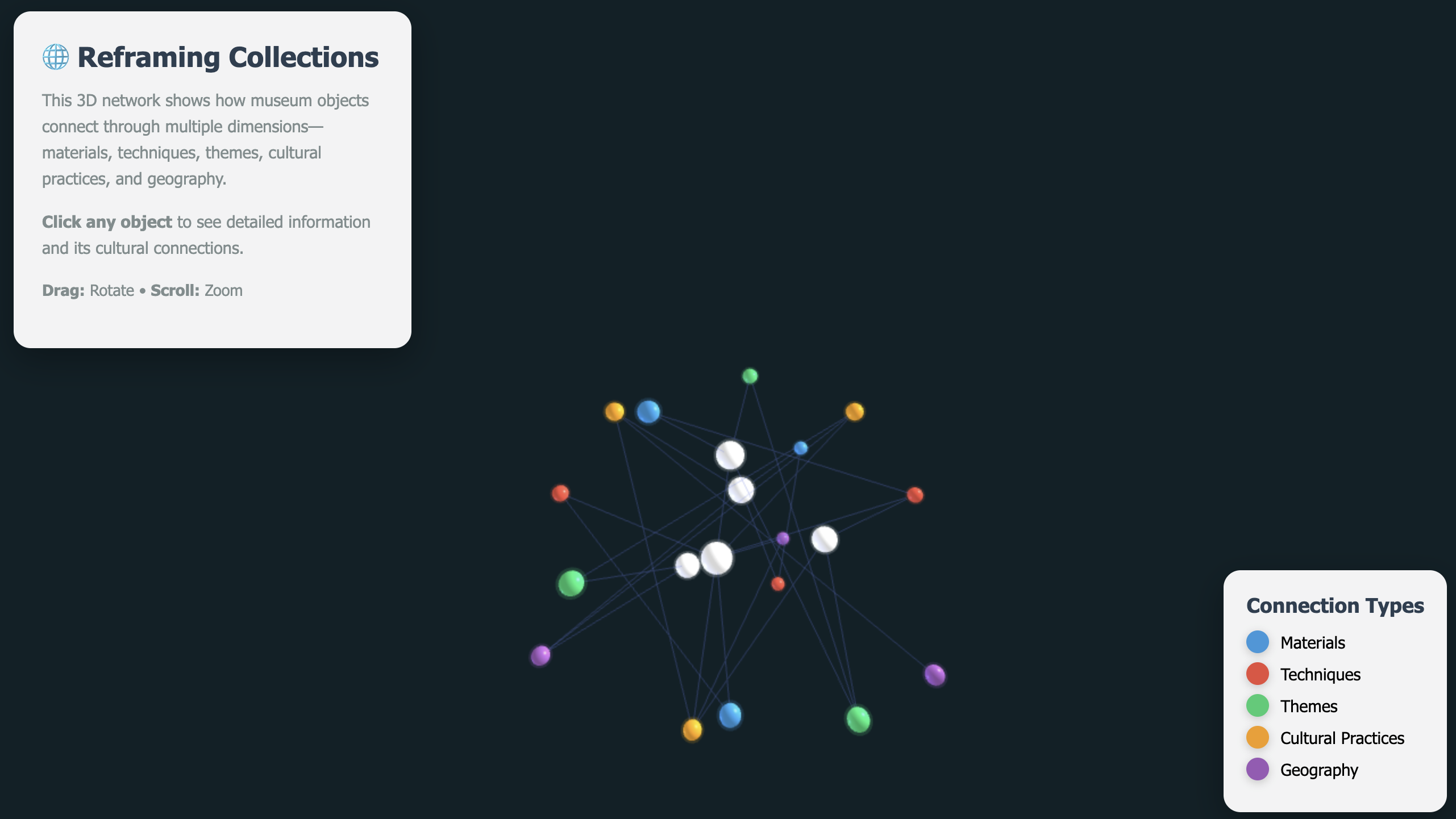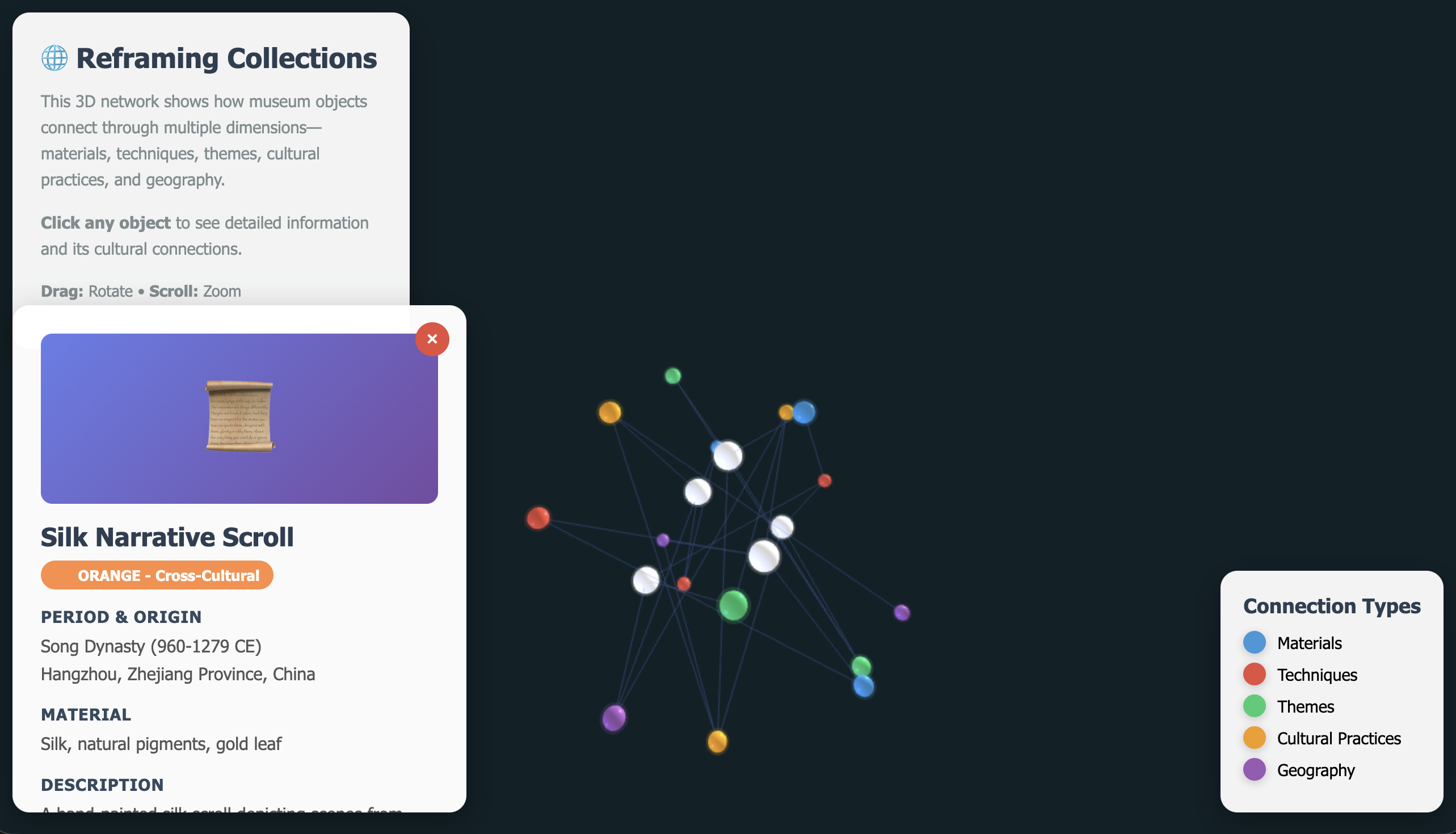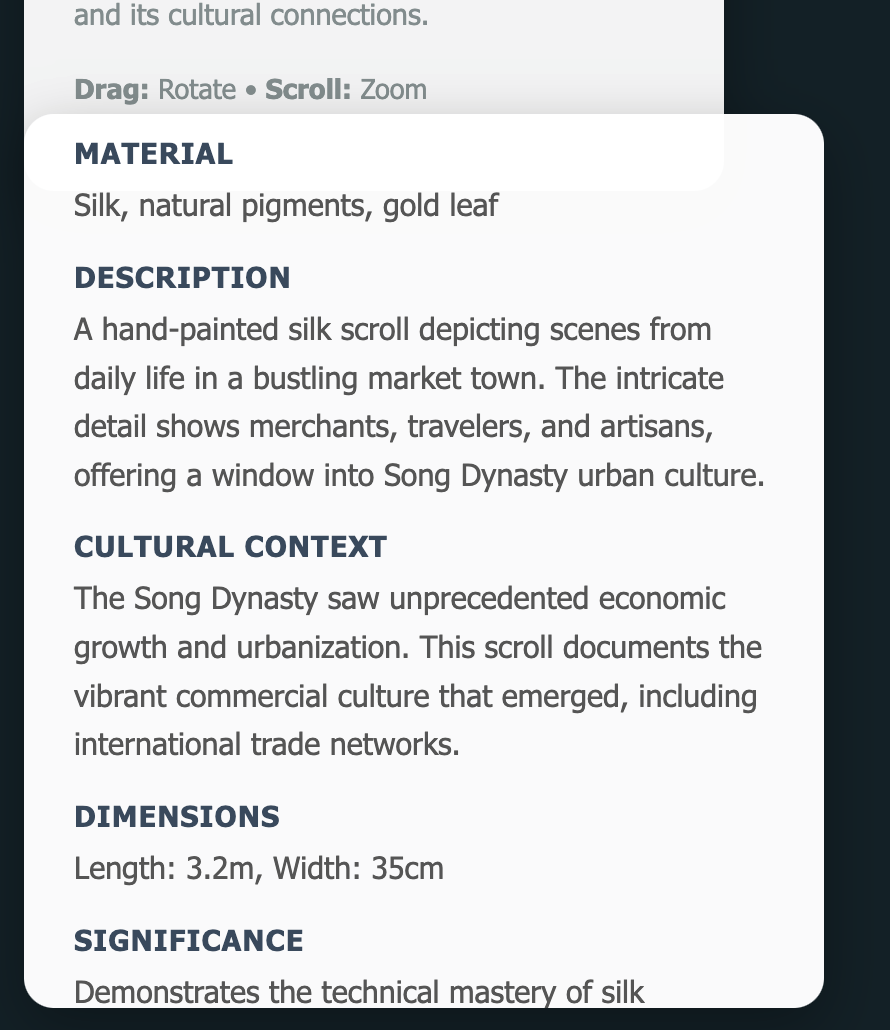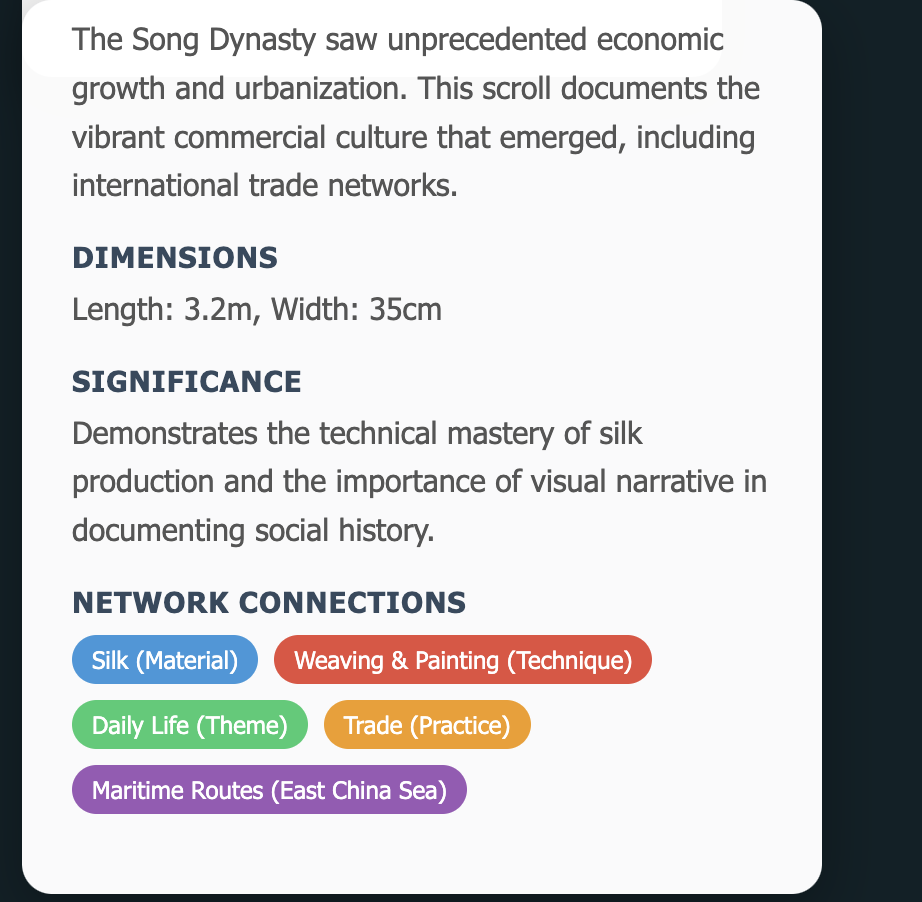Data, Information and Content
How We Show What We Know (And What We're Still Learning)
We use a color-coded system to be transparent about our curatorial process:
- Blue: Basic information to understand the object
- Green: Objects with interesting geographic stories or migration histories
- Orange: Objects with mixed cultural backgrounds or cross-cultural influences
- Red: We're actively rethinking how we frame these objects
- Yellow: Waiting on input from cultural experts or community members
The Technology

Reality Capture
Professional photogrammetry software for creating detailed 3D models. Free for educational institutions.
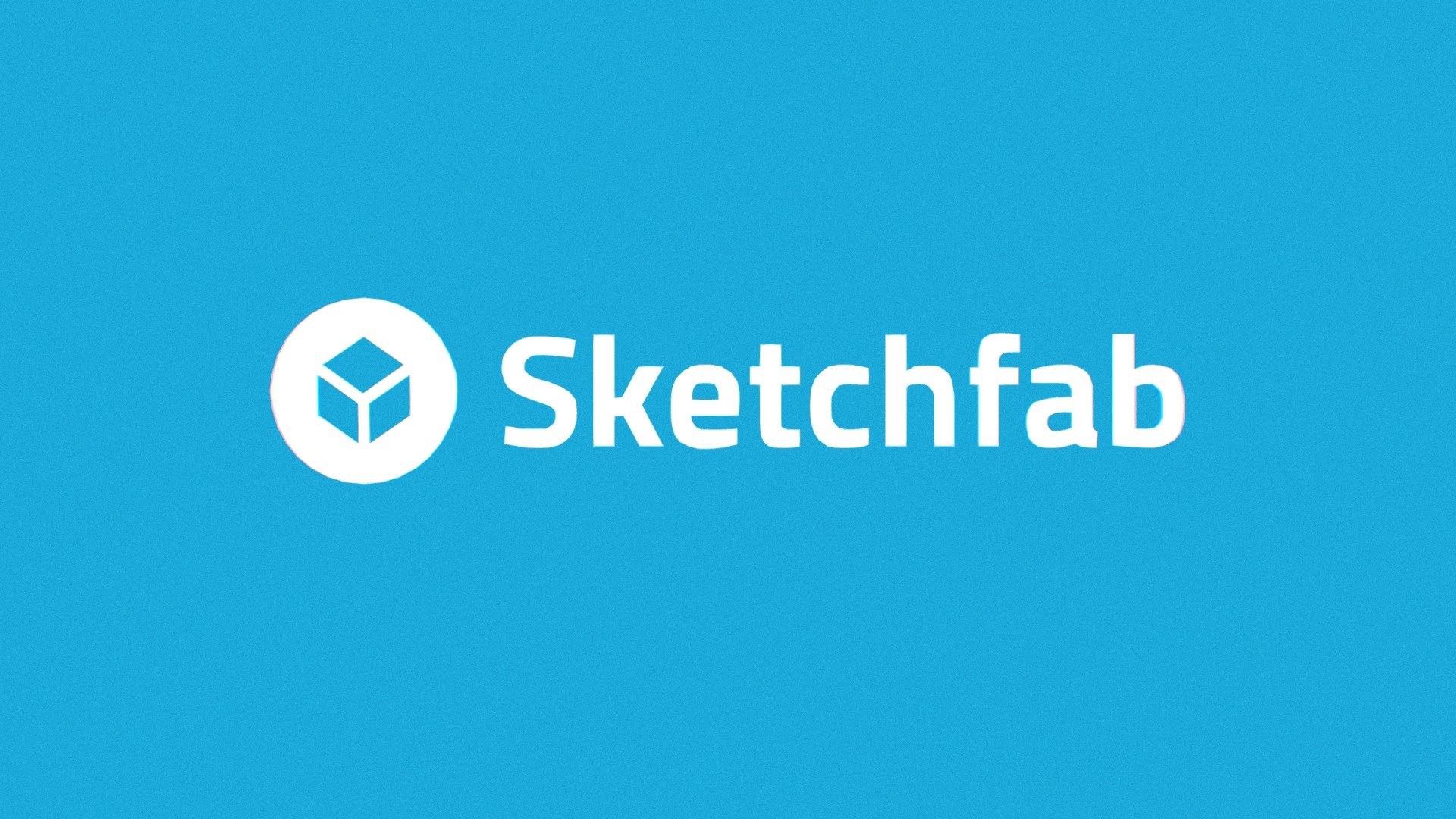
Sketchfab & MetaAR
Platform for displaying 3D models and creating AR experiences. Free for museums and cultural institutions.

Cytoscape
Open-source software for visualizing complex networks and mapping connections between objects.
The Platform
A responsive website accessible at reframingcollections.org from any device. Cloud-based storage enables scalability as more institutions join. No app downloads or special software required.
What It Costs
Most of the software we're using is free for educational and cultural institutions. The real costs are people's time, labor, and cloud hosting.
Starting Small (1-2 museums, 50-100 objects): $15,000-30,000. A part-time team working with a couple of partner institutions to prove the concept works.
